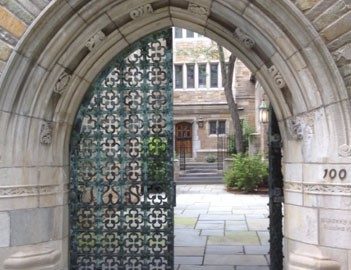Top-Tier College Consortia As a Factor in Selection
IvySelect assists you in your quest to gain acceptance to top-tier colleges and universities. Among our most important tasks is to help you select those 12 or 13 schools that best suit your educational goals, preferences, skills, and interests. This is not a simple process. There are many elite schools and many personal factors to be taken into account. If, among your preferences, is a desire to maximize the academic choices available to you, you should consider the top-tier schools that are members of a cross-registration consortium.
Attending a school with cross-registration options enables you to enroll in classes beyond those offered at your own institution. In so doing, you can widen your experience of other campuses, academic cultures, and courses.
Each college consortium has its own rules. Policies in some of them only allow you to cross-register for courses not offered at your home college, others allow it only on a space-available basis, and yet others function almost as if the member colleges were one big institution for course registration.
Below is a synopsis of the most well established college consortia. They all include one or more of the top-tier institutions that IvySelect’s students aspire to attend.
- The Consortium of Universities of the Washington Metropolitan Area
This consortium traces its roots to the 1930s, when the leaders of universities in Washington began exploring the possibility of collaboration across academic programs. Based on an examination of their programs in the 1960’s, the presidents of the five universities in the city determined that their institutions would benefit greatly from formal collaboration. These are American University, Catholic University of America, George Washington University, Georgetown University, and Howard University.
The original open cross-registration plan remains the core value of the Consortium, which has increased from the initial five to the current total of 14 members, among which are George Mason, Trinity, and the University of the District of Columbia. The Consortium has far exceeded its founding vision. The library collaboration alone has been so successful that it has spawned a separate organization called the Washington Research Library Consortium.
- The Claremont Colleges Consortium
This is a group of five separate liberal arts colleges located near one another in southern California. Among them is Pomona College, which has recently been ranked #10 on the 2017 Forbes Magazine list of the best institutions in the country. It’s the only college on the list with nine great national research universities, including Harvard #1, Stanford #2, and Yale #3.
The other colleges in the Consortium are Claremont-McKenna, Pitzer, and Scripps, all top-tier liberal arts colleges and Harvey Mudd, one of the top engineering schools in the country. The Keck Graduate Institute is also a member and, under certain conditions, undergraduates at the five colleges are permitted to register for courses at Keck.
- The Quaker and Tri-College Consortium
The Tri-College Consortium consists of three private liberal arts colleges in the Philadelphia suburbs: Bryn Mawr College, one of the Seven Sisters schools, Haverford College, and Swarthmore College. The Consortium allows students to cross register easily for non-core courses at the other colleges. Bryn Mawr and Haverford enjoy an especially close relationship. They share a student newspaper and radio station and essentially offer an overlapping student experience. The Quaker Consortium is another affiliation that joins the Tri-College Consortium to the University of Pennsylvania, the Ivy League institution within the city of Philadelphia.
- MIT/Harvard/Wellesley/ Massachusetts College of Art & Design
This Boston-area consortium, which involves a few of the best schools in the country, has no distinct administrative organization. Full-time students at the member schools may take courses for credit at MIT, Harvard University, Wellesley College, and the Massachusetts College of Art & Design. Registration is not simple because students must meet all of the rules and policies of both schools. Nevertheless, it’s worth the effort to attend classes at these elite institutions.
- The Five Colleges Consortium
The Five Colleges is one of the oldest and most formally organized of the consortia. It was established in 1965 to promote the educational objectives of four private, residential liberal arts colleges: Amherst, Mount Holyoke, Hampshire, and Smith, and the University of Massachusetts at Amherst.
Features of the Consortium that contribute to its success include:
– Shared use of educational and cultural facilities, including a joint library system, open cross registration, and open theater auditions.
– Joint departments and programs.
– Inter-campus transportation.
The proximity of the schools in the Connecticut River valley of western Massachusetts facilitates Five College collaboration, as does their commitment to the liberal arts and undergraduate education.
Other college consortia in the U.S. include many excellent schools. Interested students should ask their IvySelect admissions counselor about the following:
- Atlanta Regional Council for Higher Education
- Babson/Brandeis/Olin/Wellesley
- Barnard/Columbia/Juilliard
- Boston Area Consortium
- Caltech/Occidental/Art Center of California
- New York 6 Liberal Arts Consortium
- Oregon Alliance of Independent Colleges & Universities
- Pittsburgh Council on Higher Education
- Hudson Mohawk Association
- Associated Colleges of the St. Lawrence Valley
- Lehigh Valley Association of Independent Colleges
IvySelect provides superior comprehensive and individualized counseling based on years of experience in assisting students to attain their educational goals. Some of the top-tier institutions to which our students have been admitted include Harvard, Princeton, Yale, Penn, Columbia Brown, Dartmouth, Cornell, Stanford, Duke, MIT, Cal Tech, Oxford (U.K.), Chicago, John’s Hopkins, Northwestern, Georgetown, Vanderbilt, Rice, Washington University in St. Louis, Emory, Notre Dame, Wake Forest, USC, Berkeley, UCLA, NYC, Boston College, Amherst, Williams, Swarthmore, Wesleyan, Bowdoin, Middlebury, Haverford, Wellesley, Vassar, Barnard, Colgate, Hamilton, Michigan, Virginia, North Carolina, Texas, Wisconsin, Tulane, Boston University, and Rochester.





